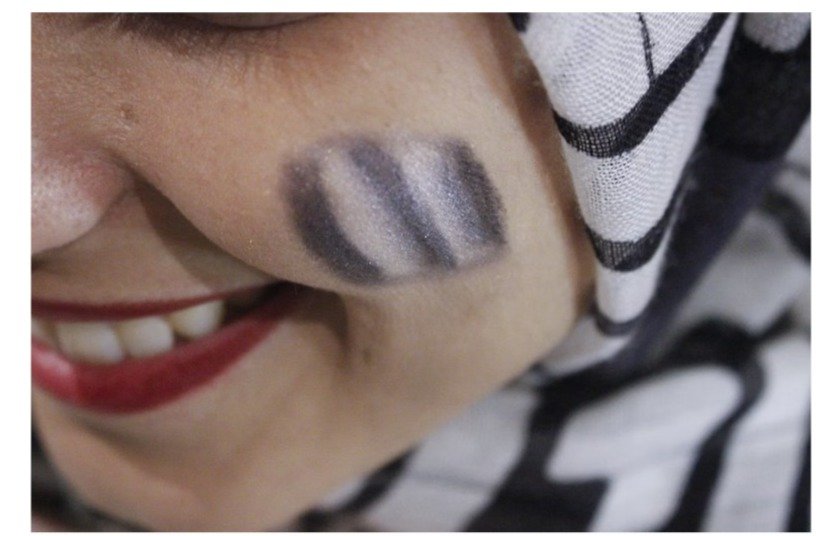Say Goodbye to Cheek Biting: Tips for Breaking the Habit
Cheek biting can become an automatic response for many people, often arising from stress, anxiety, or boredom. This involuntary habit may lead to painful sores and long-term dental issues. Understanding the reasons behind this behavior is crucial to effectively breaking the cycle. Many individuals may find themselves unknowingly contributing to the problem, making it imperative to address the root causes. Let’s explore techniques and insights that can help individuals overcome cheek biting and reclaim their comfort.
Understanding the Triggers
To tackle cheek biting, recognizing what triggers the habit is crucial. Many people experience this behavior in situations that invoke stress or anxiety, leading them to unconsciously bite their cheeks for comfort. Common stressors can include work-related pressures, social situations, or even boredom.
People might identify trends linked to their triggers by recording instances of cheek biting in a notebook. The answer to how to stop cheek biting lies in identifying your triggers. If someone notices they tend to bite their cheeks when watching stressful movies or engaging in high-pressure discussions, they can strategize ways to manage their emotional responses more effectively. This level of self-awareness can significantly improve their chances of breaking the habit.
Physical factors such as misaligned teeth or sharp edges from dental work can contribute to accidental cheek biting. Consulting with a dentist to address any structural issues may reduce unintentional bites. Developing alternative coping mechanisms, like chewing sugar-free gum or practicing mindfulness, can help redirect the urge to bite. Stress management techniques, such as deep breathing exercises or regular physical activity, can further lessen anxiety-induced cheek biting.
Finding Healthy Substitutes
Once triggers are identified, the next step involves substituting the detrimental behavior with healthier options. Chewing gum can serve as an excellent alternative, as it provides a similar oral sensation while keeping the mouth occupied. Selecting sugar-free gum can satisfy cravings without negatively affecting dental health.
Practicing mindfulness can help replace the cheek-biting habit. Techniques include deep breathing exercises, meditation, or progressive muscle relaxation. These methods can promote relaxation and decrease the instances of anxiety that lead to cheek biting. By fostering a more mindful approach to stress management, individuals can empower themselves to resist the urge to bite their cheeks.
Creating a Support System
A support system can play a significant role in overcoming cheek biting. Friends and family often can provide accountability and encouragement when trying to break habits. Sharing one's struggle with cheek biting may lead to constructive conversations about stress and coping mechanisms. Apprising loved ones about the effort to quit biting helps remind them to intervene if they notice an individual slipping back into the habit.
Support groups or online forums focused on habit-breaking can serve as valuable resources. These communities provide encouragement, share tips, and celebrate progress, creating an environment where individuals can feel understood and motivated. Sharing experiences with others might lead to insights into effective strategies for discontinuing cheek biting.
Involving healthcare professionals, such as therapists or dentists, can enhance the support system by offering expert guidance tailored to individual needs. Cognitive-behavioral therapy (CBT) techniques can help address underlying stress or anxiety contributing to the habit. Regular check-ins with a trusted friend or mentor can reinforce commitment and track progress. Positive reinforcement, like rewarding milestones, encourages continued effort and resilience.
Utilizing Professional Help
For some, breaking the cycle of cheek biting might require professional assistance. Behavioral therapists can help individuals explore underlying psychological factors contributing to the habit. Therapeutic techniques, such as cognitive-behavioral therapy, can prove beneficial. CBT focuses on altering negative thought patterns and responses, providing tools to manage anxiety in healthier ways.
Working with a dentist can be valuable, as dental health specialists can provide advice on mitigating oral damage caused by cheek biting. They may recommend dental guards or other protective measures to minimize injury while working on behavior change. By collaborating with professionals, individuals can formulate a comprehensive plan to address their cheek-biting habits effectively.
This trained dentist in New Kent VA adds that when consulting with a dentist, they can offer more than just protective measures. They can also assess any existing damage to the cheeks, gums, or teeth and suggest restorative treatments. For example, if chronic biting has led to a misaligned bite or sharp edges on a tooth, a dentist might recommend a simple adjustment or a filling to create a smoother surface, thereby reducing the likelihood of future irritation and helping to break the habit physically.
Mindfulness and Meditation Techniques
Engaging in mindfulness practices can dramatically reduce stress levels, which in turn helps minimize the urges to bite one's cheeks. Techniques such as guided meditations, deep breathing exercises, or even yoga can all contribute to enhanced emotional regulation. By accepting the present moment and employing these techniques, individuals can cultivate a more peaceful state of mind.
Visualization techniques can be particularly effective. Individuals can envision themselves in scenarios where they previously bit their cheeks, picturing themselves reacting calmly without resorting to this behavior. Practicing these scenarios can reinforce the idea that it's possible to navigate stress without self-inflicted harm.
Breaking the cheek biting habit may take time and effort, but employing a combination of self-awareness, healthy substitutes, social support, and professional guidance can return a sense of comfort to one's life. Adopting these strategies empowers individuals to reclaim control, reduce stress, and ensure optimal oral health, making significant strides toward a more fulfilling experience without the disturbance of cheek biting.






